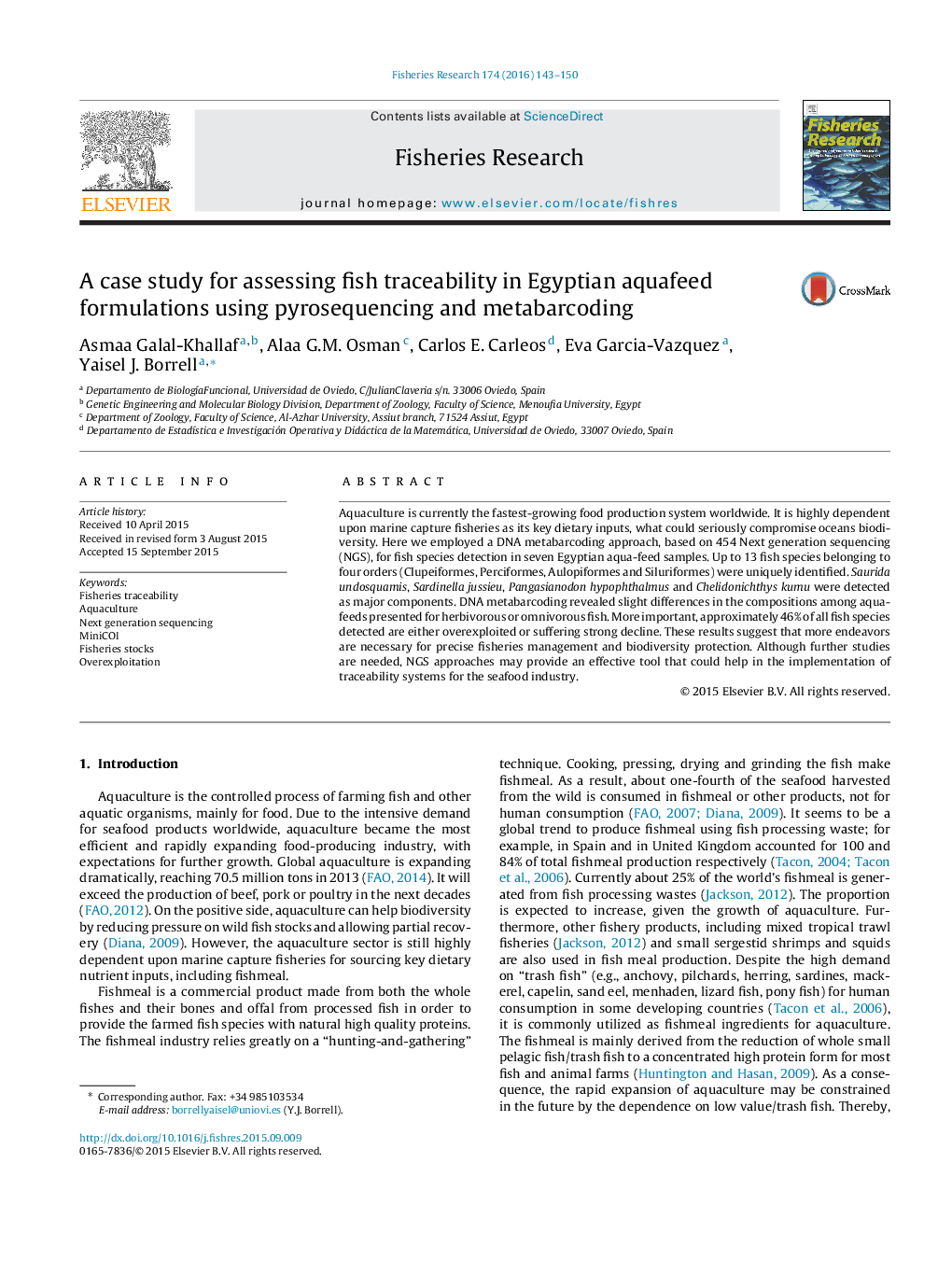| Article ID | Journal | Published Year | Pages | File Type |
|---|---|---|---|---|
| 6385581 | Fisheries Research | 2016 | 8 Pages |
Abstract
Aquaculture is currently the fastest-growing food production system worldwide. It is highly dependent upon marine capture fisheries as its key dietary inputs, what could seriously compromise oceans biodiversity. Here we employed a DNA metabarcoding approach, based on 454 Next generation sequencing (NGS), for fish species detection in seven Egyptian aqua-feed samples. Up to 13 fish species belonging to four orders (Clupeiformes, Perciformes, Aulopiformes and Siluriformes) were uniquely identified. Saurida undosquamis, Sardinella jussieu, Pangasianodon hypophthalmus and Chelidonichthys kumu were detected as major components. DNA metabarcoding revealed slight differences in the compositions among aqua-feeds presented for herbivorous or omnivorous fish. More important, approximately 46% of all fish species detected are either overexploited or suffering strong decline. These results suggest that more endeavors are necessary for precise fisheries management and biodiversity protection. Although further studies are needed, NGS approaches may provide an effective tool that could help in the implementation of traceability systems for the seafood industry.
Related Topics
Life Sciences
Agricultural and Biological Sciences
Aquatic Science
Authors
Asmaa Galal-Khallaf, Alaa G.M. Osman, Carlos E. Carleos, Eva Garcia-Vazquez, Yaisel J. Borrell,
